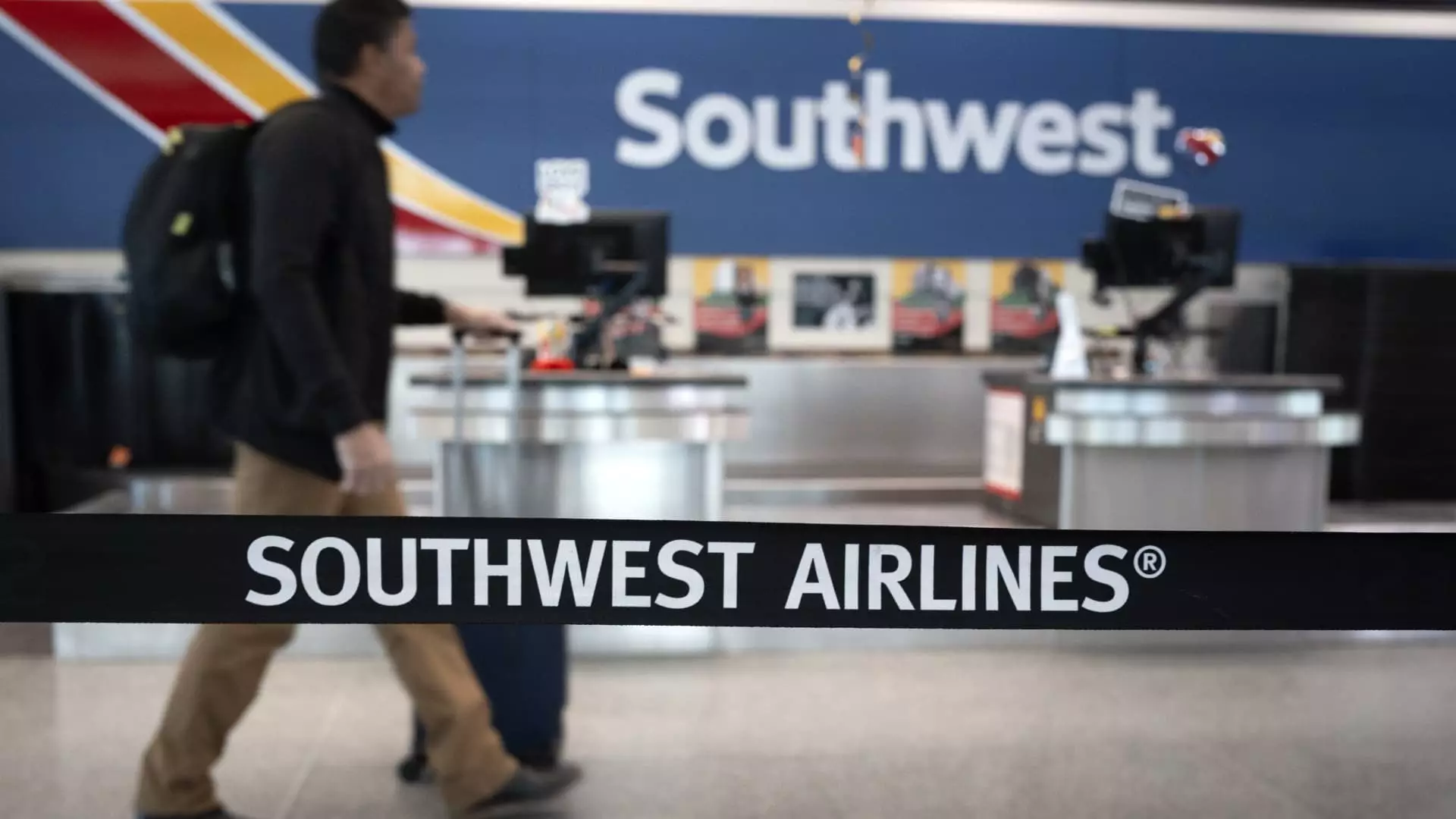For over fifty years, Southwest Airlines basked in the glow of its unique “two bags fly free” policy, winning the loyalty of countless travelers. This hallmark of customer service set the airline apart in a fiercely competitive marketplace and became an emblem of its brand identity. However, beginning Wednesday, this cherished perk will become a memory as the airline prepares to levy fees for checked luggage for the first time in its history. This seismic shift reflects not just a change in policy but a broader trend within the airline industry—a shift driven by profit motives rather than customer satisfaction.
Profit Over Passengers: The $7.3 Billion Factor
The airline industry collected an astounding $7.3 billion in baggage fees last year alone, according to federal data. This financial statistic speaks volumes; behind the curtain of altruistic marketing slogans lies the stern reality that companies prioritize shareholder value over the passenger experience. The decision by Southwest executives to capitulate to mounting pressure from investors highlights the growing trend of airlines commodifying services that were once free. The financial health of the airline must, of course, be prioritized. However, one must wonder at what point revenue generation crosses the line into systematic customer alienation. In this delicate balance between profitability and loyalty, there is no doubt that passengers will feel the sting of this decision.
The Impact of Rivals: Setting a Dangerous Precedent
Southwest’s move to abandon its well-loved baggage policy seems to echo decisions made by other major airlines, which typically charge around $35 to $40 for a first checked bag. As this once-noble airline mirrors the practices of its competitors, we are entering dangerous territory for frequent flyers. Will they now also adopt other troublesome policies that passengers have been vocally opposing, like restricted ticket changes and surprise fees? Common sense dictates that once the door to these new revenue streams has been opened, airlines will cling to them closely, forever finding new ways to shift costs onto the consumer.
Changing Business Models: The New Reality of “Basic Economy”
In keeping with its industry counterparts, Southwest will introduce “basic economy” ticket tiers, stripping fundamental rights from customers in favor of maximizing profit. Under this new regime, not only will fare credits dwindle from 12 months to an unceremonious six, but the policies will actively curtail essential consumer freedoms, such as the ability to modify reservations. As if this wasn’t enough salt in the wound, travelers will also find themselves boarding last. These changes will rob loyal customers of the advantages they have grown accustomed to and will force them to endure an experience tailored to suit the airline’s bottom line rather than their needs.
The Reality of Loyalty Programs: Exclusivity and Discontent
Ironically, the new baggage fees will still allow elite members of Southwest’s Rapid Rewards loyalty program to check in two bags without additional charges. This preferential treatment raises questions about fairness and accessibility: What of the average traveler who has remained loyal to the airline? The burden of extra fees will disproportionately weigh on less frequent fliers, potentially pushing them away from a carrier they once embraced. The shift favors the privileged few while leaving the majority scrambling to adapt in a shifting mosaic of loyalty benefits.
A Generational Shift: How Far Will Travelers Go?
As the airline promises more changes—including the introduction of designated seating—one must wonder how loyal the loyalists will remain. Southwest has long thrived as a beloved option for budget travelers, but in sacrificing its core philosophy, is it alienating a generation of consumers? Heavy reliance on carry-ons, which will remain free but subject to increased scrutiny, serves as a reminder that there is a cost to the evolving landscape of air travel. However, one must also recognize the deeper implications: Are we witnessing the demise of an airline that once championed the everyman in favor of an earnings-driven strategy?
As for customer reactions, the company’s facilitatory social media posts seem to mask an undercurrent of significant backlash. Anger often bubbles to the surface when individuals feel a vital part of their experience is being stolen from them—with CEO Bob Jordan’s assurances doing little to quell the unrest. The question lingers: How much are travelers willing to tolerate before they decide to take their business elsewhere? As Southwest Airlines embarks on this new journey, it will require more than just PR statements to balance the scales of discontent. The stakes are high, and customer patience may ultimately wear thin.

